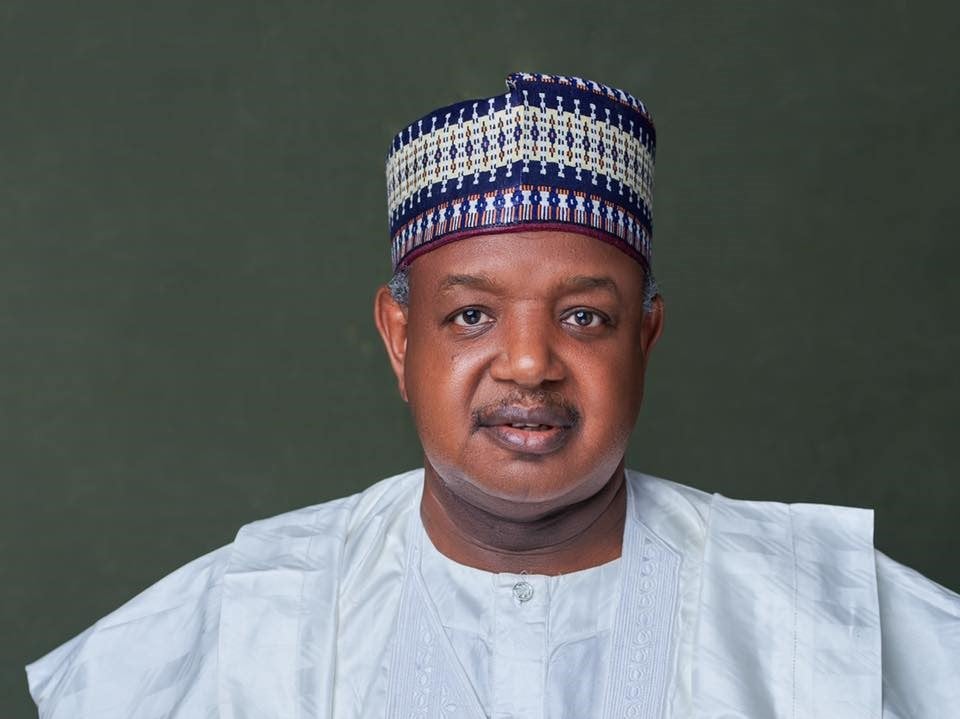
The House of Representatives is considering a bill seeking an act aimed at averting unnecessary delays in the dispensation of justice in civil and criminal matters in the country.
The proposed bill specifically seeks to alter the Constitution to set a time frame within which civil and criminal cases and matters are heard and determined at trial and appellate courts in order to eliminate unnecessary delays in justice administration and delivery, and for related matters.
The proposed legislation, sponsored by the Deputy Speaker, Benjamin Kalu, and some other lawmakers, was presented for second reading by the House Leader, Hon. Julius Ihonvbere, at plenary on Thursday.
According to the bill’s draft, in any civil or criminal matter except in election petitions, a trial superior court of record shall deliver its judgment in writing within 270 days from the date of the filing of the civil or criminal matter.
The proposed legislation further states that in any civil or criminal matter except in election petitions, a trial inferior court of record or tribunal shall deliver its judgment in writing within 210 days from the date of the filing of the civil or criminal matter.
It added: “Notwithstanding the provisions of subsections (1) and (2) of this section – (a) a trial superior court of record may deliver its judgment in writing within 330 or more days, having regard to the circumstances of the matter, in particular, the complexity of the matter, the number of parties, the number of witnesses, the number of documents, or other exceptional circumstances; and a trial inferior court of record may deliver its judgment in writing within 270 or more days, having regard to the circumstances of the matter, in particular, the complexity of the matter, the number of parties, the number of witnesses, the number of documents, or other exceptional circumstances.
“An appeal arising from a civil or criminal matter, except in election petitions, shall be heard and judgment delivered in writing by an appellate court within 180 days from the date of the filing of the appeal, or such number of days not exceeding 270 days, having regard to the circumstances of the appeal, in particular, the complexity of the appeal, the calling of fresh evidence, or other exceptional circumstances.”
Bills seeking to create Bende North Local Government Area from the existing Bende Local Government, involve the National Assembly in the process of treaty negotiations, and provide for the listing of the National Assembly Service Commission and the State House of Assembly Service Commission as independent bodies also scaled the second reading stage on the floor of the House.
The lawmakers also passed through the second reading bills seeking the establishment of the University of Nigerian Languages, Aba, Abia State, and the provision for the conduct of a population census every ten years.
These include the “Bill for an Act to Repeal the National Institute for Nigerian Languages Act, Cap. N50, Laws of the Federation of Nigeria, 2004, and Enact the Provisions for the Establishment of the University of Nigerian Languages, Aba, Abia State, to Make Comprehensive Provisions for its Due Management and Administration and for Related Matters; Bill for an Act to Alter the Constitution of the Federal Republic of Nigeria, 1999, to Provide for the Involvement of the National Assembly in the Process of Negotiation for and Entering into Treaties with Other Countries; Bill for an Act to Alter the Constitution of the Federal Republic of Nigeria, 1999 (as amended), to Provide for the Listing of the National Assembly Service Commission and the State House of Assembly Service Commission as Independent Bodies Under Sections 158 and 197, Respectively; to Enhance the Independence of the National Assembly Service Commission and the State House of Assembly Service Commission, and to Clearly Designate the Clerk of the National Assembly and Clerks of State Houses of Assembly as Heads of Legislative Service at the National and Sub-national Levels.
Bill for an Act to Alter the Constitution of the Federal Republic of Nigeria, 1999, to Provide for the Creation of Bende North Local Government Area Out of the Present Bende Local Government Area of Abia State; To Rename Bende Local Government Area as Bende South Local Government Area of Abia State; and Bill for an Act to Provide for the Conduct of a Population Census Every Ten Years After the Publication by the President of a Population Census Report.”
For the University of Nigerian Languages, Aba, Abia State, the bill seeks to provide for the upgrade of the institute to a university to allow it to run degree programs.
It also seeks to promote the study and use of Nigerian languages, ensure that the legal framework of the institute conforms to the regulations of the National Universities Commission, and establish a university that will promote the study and use of Nigerian languages.
According to the explanatory memorandum of the census bill, it seeks to alter the Constitution of the Federal Republic of Nigeria, 1999 (as altered), to provide for the conduct of a population census every ten years after the publication by the President of a population census report.
READ ALSO:
The bill’s draft states, “Section 213 of the Principal Act is altered by inserting after subsection (5), a new subsection ‘(5A)’ as follows – ‘(5A) There shall be a population census every ten years after publication by the President of a population census report in the official gazette of the government of the Federation.’ Third Schedule, Part I, item-J of the Principal Act is altered by substituting the existing subparagraph ‘(a),’ with a new subparagraph ‘(a)’ as follows: ‘(a) undertake enumeration of the population every ten years through sample survey census or otherwise.'”
The treaties bill seeks to alter the Constitution of the Federal Republic of Nigeria, 1999 (as altered), to provide for the involvement of the National Assembly in the process of negotiation for and entering into treaties with other countries.
The bill specifically seeks to amend the Constitution by inserting new subsections in the Principal Act to allow the National Assembly to make laws for the making of treaties between the Federation and any other country on any matter on the Exclusive Legislative List.
According to the draft, the President shall involve the National Assembly in the process of negotiation for and entering into all treaties on behalf of the Federal Republic of Nigeria with any other country.
For the Bende bill, it seeks to alter the Constitution to provide for the creation of Bende North Local Government Area out of the present Bende Local Government Area of Abia State and to rename the present Bende Local Government Area as Bende South Local Government Area of Abia State.
According to the explanatory memorandum, the First Schedule to the Principal Act is altered in the second column of the first row showing Local Government Areas in Abia State by deleting the word “Bende” and inserting the words “Bende North, Bende South.”
On the bill for the listing of the National Assembly Service Commission and the State House of Assembly Service Commission as independent bodies, it seeks to alter the Constitution to enhance their independence and to clearly designate the Clerk of the National Assembly and the Clerks of the State Houses of Assembly as the Heads of Legislative Service at the national and subnational levels, respectively.
According to the explanatory memorandum, “Substitute for section 51 of the Principal Act, a new section ’51’ – Staff of the National Assembly. There shall be a Clerk to the National Assembly, who shall be the Head of the Legislative Service, and such other staff as may be prescribed by an Act of the National Assembly. The method of appointment of the Clerk and other staff shall be as prescribed by the Act of the National Assembly made pursuant to subsection (1) of this section.”
“Substitute for section 93 of the Principal Act, a new section ’93’ – Staff of House of Assembly: There shall be a Clerk to each State House of Assembly, who shall be the Head of the Legislative Service for that State, and such other staff as may be prescribed by a law of that State House of Assembly. The method of appointment of the Clerk and other staff shall be as prescribed by that law of the State House of Assembly made pursuant to subsection (1) of this section.”
When put to a voice vote by the Deputy Speaker, Rt. Hon. Benjamin Kalu, who presided over the session, it was supported by the lawmakers and passed.






